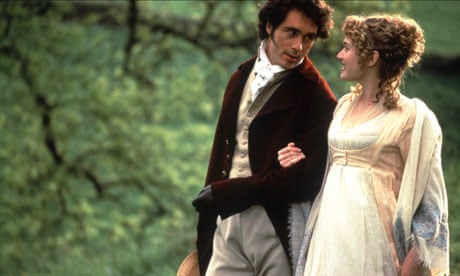"Genre fiction" is a nasty phrase – when did genre turn into an adjective? But I object to the term for a different reason. It's weasel wording, in that it conflates lit fic with literature. It was clever marketing by publishers to set certain contemporary fiction apart and declare it Literature – and therefore Important, Art and somehow better than other writing.
The term sneaks back into the past in a strangely anachronistic way, so that, for example, Jane Austen's works are described as literary fiction. This is nonsense. Can anyone think for a moment that were she writing today she'd be published as lit fic? No, and not because she'd end up under romance or chick lit, but because she writes comedy, and lit fic, with a few rare exceptions, does not include comedy within its remit.
Austen never for a moment imagined she was writing Literature. Posterity decided that – not her, not John Murray, not even her contemporary readership. She wrote fiction, to entertain and to make money.
Which is what we novelists have been doing ever since. Or should have been doing. Perhaps, in our serious and solemn way, we ask fiction to bear a burden it was never intended to carry. Look at some of the claims made for lit fic. For instance:
"Literary fiction emphasises meaning over entertainment." (Venture Galleries blog)
"Literary novels are prose poetry … the subject of the work is engaged with something that might be called weighty … " (Dactyl Foundation)
And, joy of joys:
"Literary Fiction is experienced as an emotional journey through the symphony of words, leading to a stronger grasp of the universe and of ourselves." (Huffington Post)
Someone should nip over to the science department and tell those physicists to stop fretting about dark matter; all they need to do is read some lit fic.
Of course, the fact that lit crit types make some absurd claims for lit fic doesn't mean writers within this category don't write good books. Or bad books, just as in all the other types of fiction. And categorisation is what it's all about. Describing books as lit fic may determine whether a book gets reviewed or not. It also determines where it gets shelved in bookstores, although with ebooks and online booksellers we're moving into more fluid ways of labelling books, so that books which don't fit neatly into slots find a place and a readership.
John Gardner, in his creative writing handbook The Art of Fiction, spoke of the fictive dream of the writer. For me, in good fiction of whatever kind, the imagination of the writer speaks directly to the imagination of the reader. I want and expect to be entertained, enchanted, transported into the world of the writer, lost in a good book. I don't want to be lectured, have issues thrust down my throat or, dare I say it, be called upon to admire the beauty of the language. If a writer writes well in addition to being a great storyteller, I'm grateful and delighted. If they write well but there's no story, I don't want to read it. For profound thoughts expressed in poetic language, I turn to poetry. For intellectual arguments and ideas that appeal to reason, I'll read non-fiction.
That may make me seem, to some people, to be that sad creature: the reader who can't rise to an intellectual challenge, who thinks plot matters, who doesn't like books that drift into purposeless endings.
Which brings me to the touchy subject of literary snobbery. Perhaps I should call it LitSnob. Lit fic: good. Popular, commercial, trash and pulp fiction: bad.
Remember that profundity has a dark twin called pretentiousness. Good fiction is good fiction, good writing is good writing and the old, old desire of the literati to cast readers with different tastes into pits labelled "middle-brow" and "low-brow" is judgmental and arrogant. It plays on the reader's fear that we might not be thought clever enough.
We feel proud to be seen reading the latest important "literary" title – but how many people never get beyond page 50 on their Kindles … ?
Fiction is a broad church, but let it be a Lollard church with wide aisles, not a Counter-Reformation one where the lit fic authors are in the sanctuary with the priesthood of the literati and acolytes in attendance, while the lesser "genre" types are banished to dim side-chapels as though they belonged to some kind of minor cult.
All books can be thrust into a genre, and lit fic is simply one of many. As a tag, it tells us nothing about the intrinsic value of any individual title. There are good books and bad books, and both are to be found from one end of the fictional horizon to the other.
Elizabeth Edmondson is the author of 30 novels. They include (as Elizabeth Edmondson) Devil's Sonata: Evil never dies and (as Elizabeth Aston) the Mountjoys series. This is an edited version of a speech given at an Oxford Literary Festival debate in support of the motion "Genre fiction is no different from literary fiction".




Comments (…)
Sign in or create your Guardian account to join the discussion